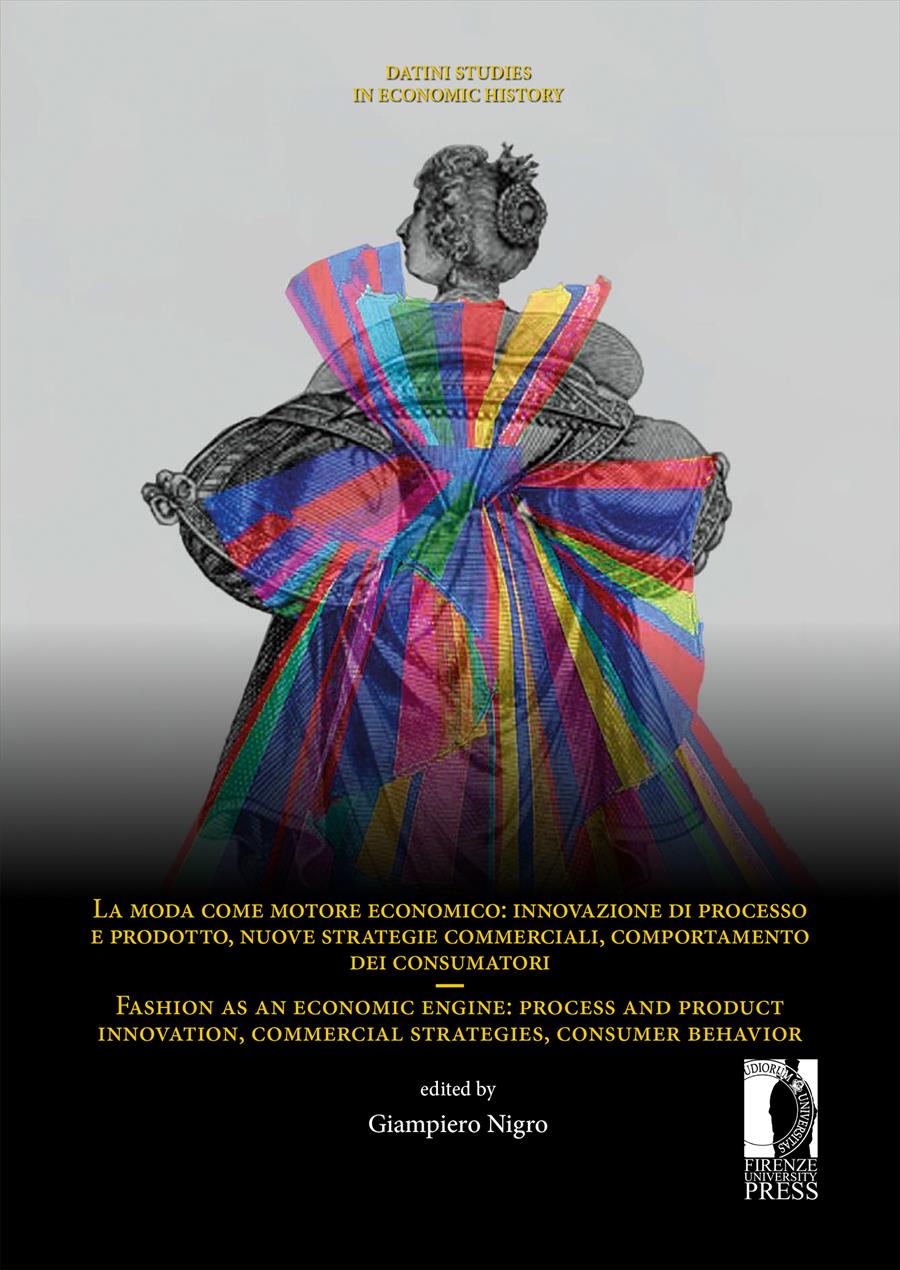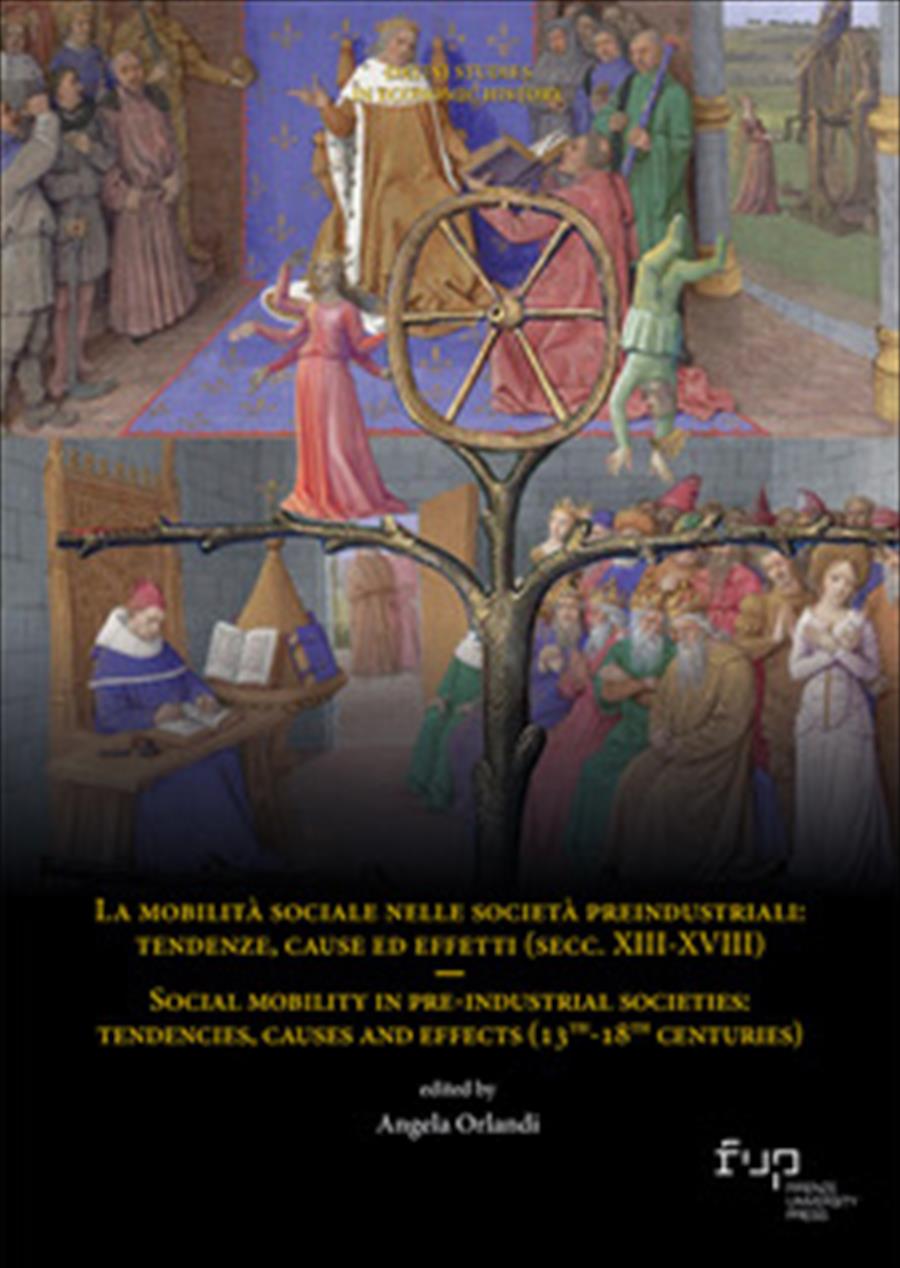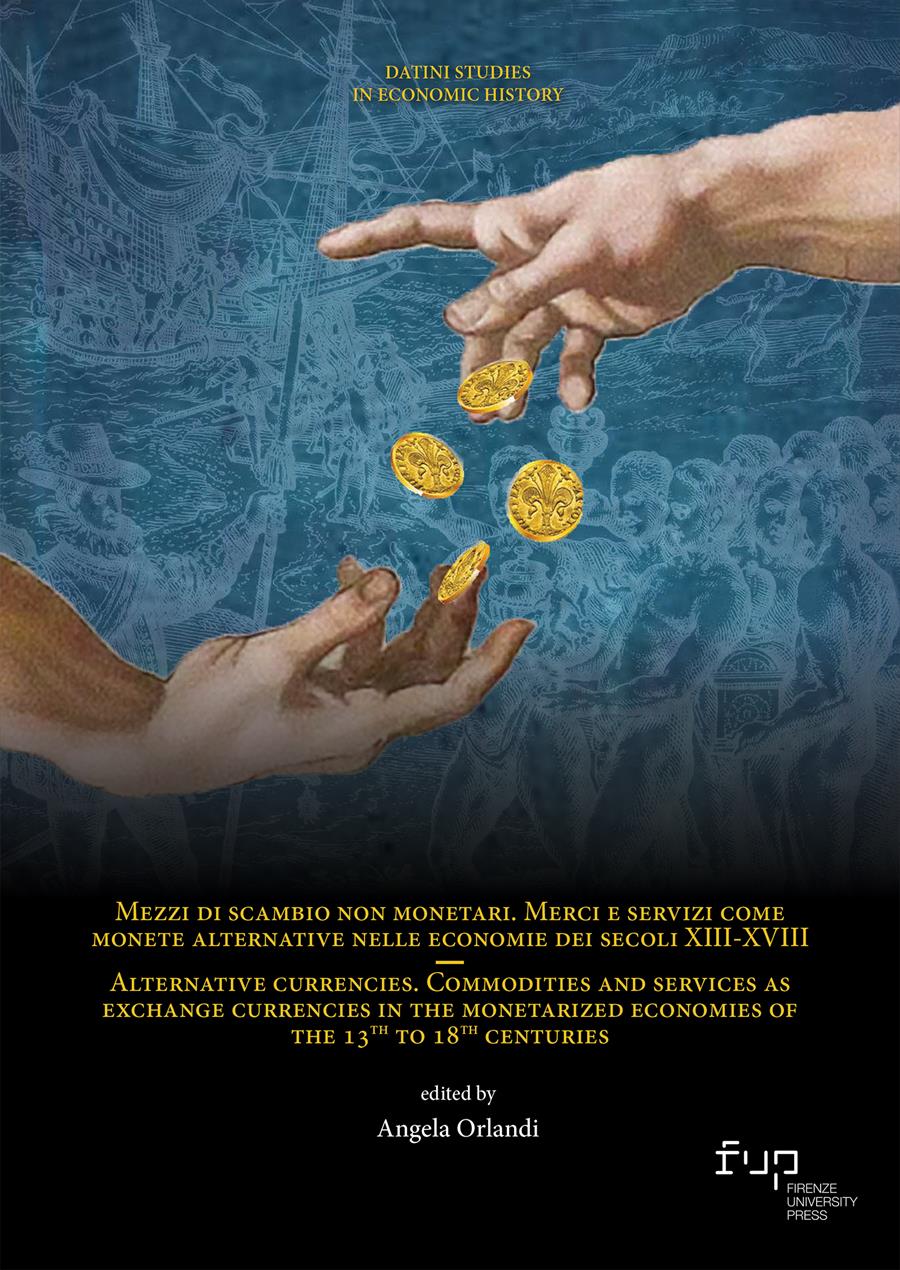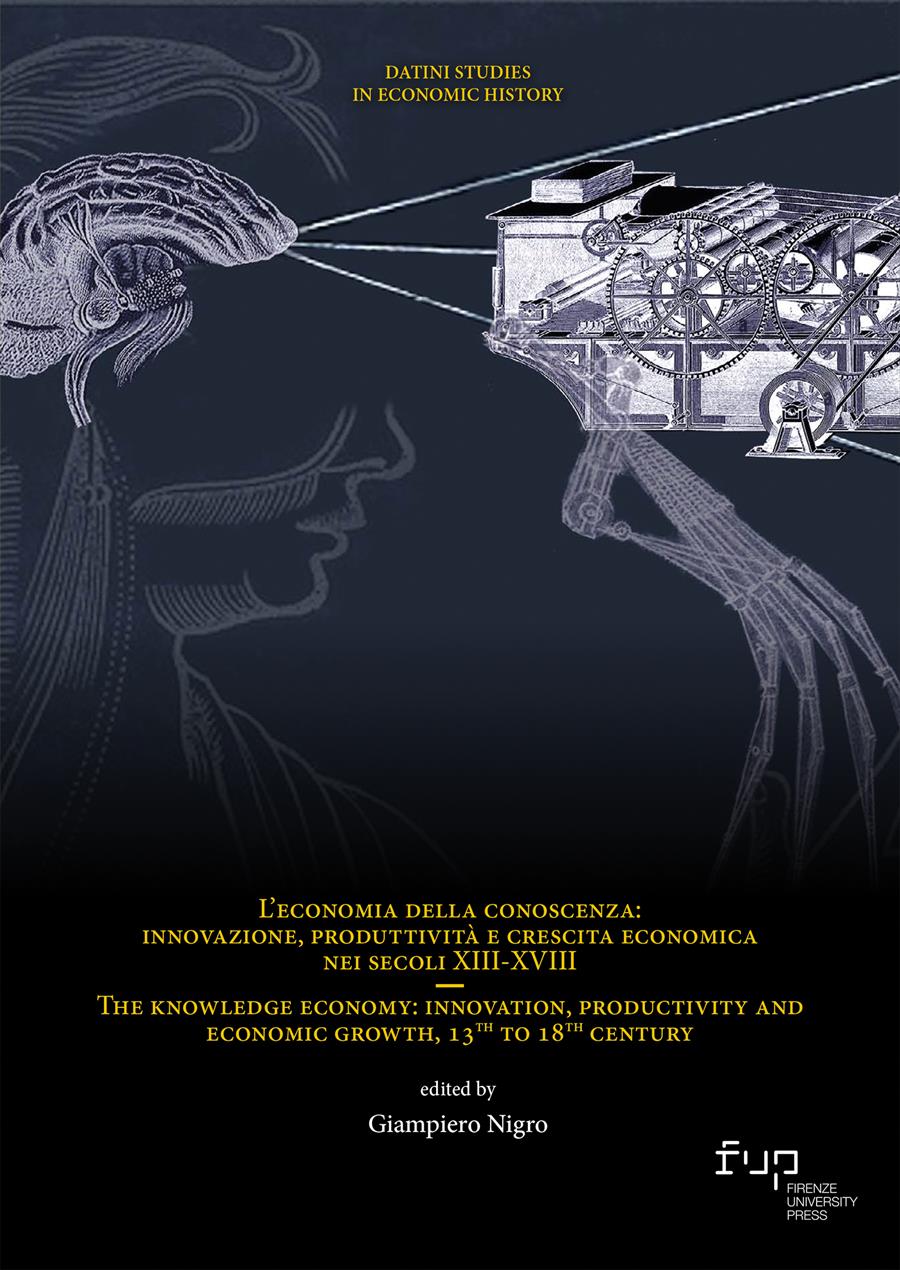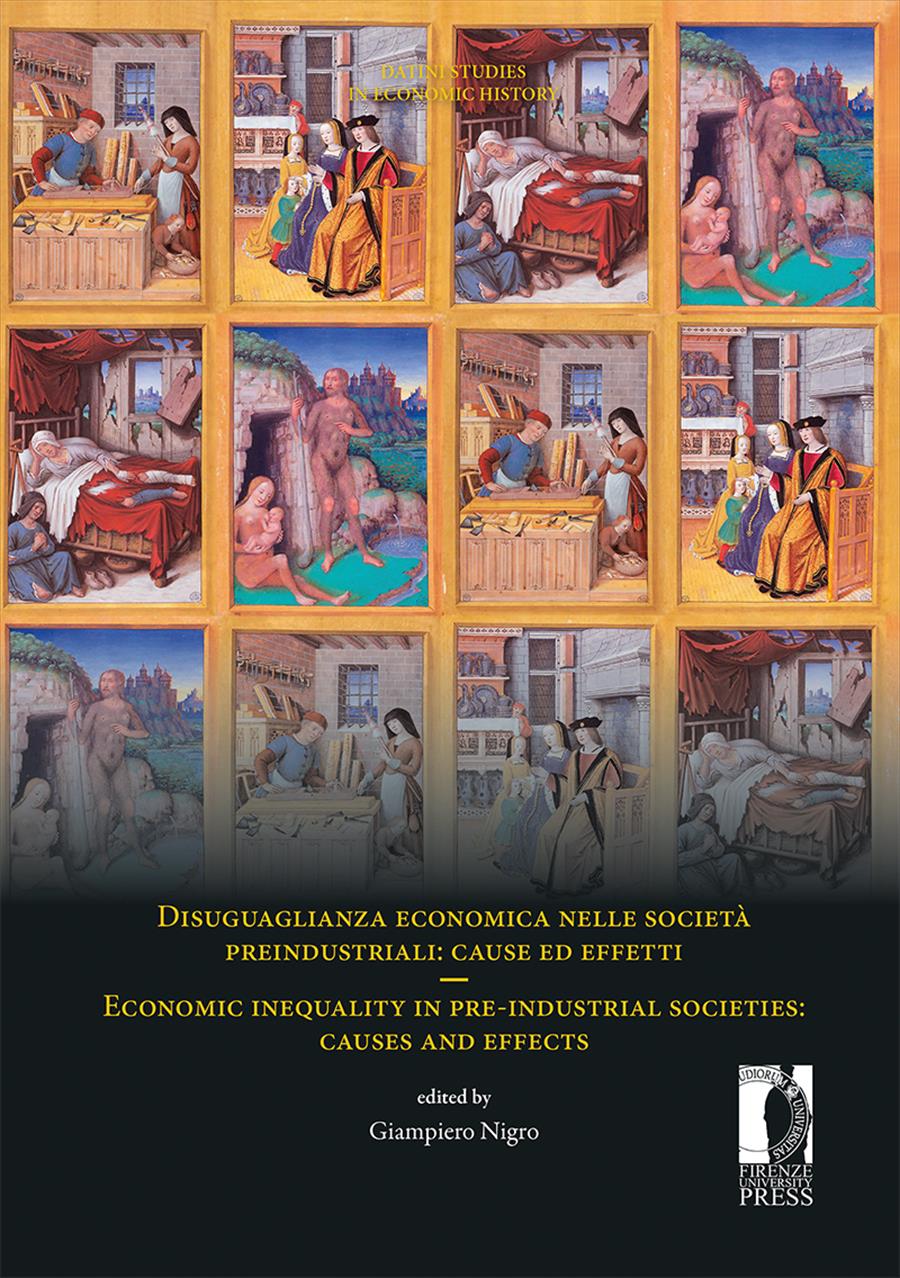La moda come motore economico: innovazione di processo e prodotto, nuove strategie commerciali, comportamento dei consumatori / Fashion as an economic engine: process and product innovation, commercial strategies, consumer behavior
- Edited by:
- Giampiero Nigro,
The study of the textile sector has always been central to economic history: from reconstructions of the dynamic growth in the medieval wool industry, to the rise of silk and light and mixed fabrics in the modern era, to the driving role of cotton in the industrialisation process. Although the dynamics of textile manufacturing are closely linked to the transformations of fashion, economic history has long neglected its role as a factor in economic change, treating it primarily as a kind of exogenous catalyst. This book makes a decisive contribution to the understanding of a fundamental transformation, the consequences of which are projected into contemporary society, but which matured in pre-industrial times: the advent of fashion.
- Keywords:
- fashion,
- economic history,
- pre-industrial economic history,
- textile manufacture,
- DOI: 10.36253/978-88-5518-565-3
- Series: Datini Studies in Economic History
- Scientific Board
- Language: English, French, Italian
- Subjects: Economic History
University of Florence, Italy - ORCID: 0000-0002-1008-1153
Innovazioni di prodotti e processi / Innovations in products and processes
Tatiana Markaki
Innovations and the art of deception: mixed cloths in Venetian Crete (17th century)- CC BY 4.0 |
- © Author(s)
-

pp.15-24
Lluís To Figueras
Drapers and tailors. Fashion and consumption in medieval Catalonia- CC BY 4.0 |
- © Author(s)
-

pp.25-44
John Styles
Re-fashioning Industrial Revolution. Fibres, fashion and technical innovation in British cotton textiles, 1600-1780- CC BY 4.0 |
- © Author(s)
-

pp.45-71
Germán Navarro Espinach, Joaquín Aparici Martí
The colour of Valencian silk fabrics in the European market (1475-1513)- CC BY 4.0 |
- © Author(s)
-

pp.73-91
pp.93-118
Nadia Fernández de Pinedo, Maria Paz Moral, Emiliano Fernández de Pinedo
Un changement radical dans la consommation de tissus par la royauté et son milieu (1293-1504): de la laine au lin et à la soie- CC BY 4.0 |
- © Author(s)
-

pp.119-145
Julien Villain
L’innovation de produit et les dynamiques de l’offre sur les marchés des étoffes de laine dans la France du XVIIIe siècle. Quelques aperçus quantitatifs et qualitatifs- CC BY 4.0 |
- © Author(s)
-

pp.147-170
Strategie commerciali / Commercial strategies
Moïra Dato, Pascale Gorguet-Ballesteros
Lyonnais silks «ad uttimo gusto»: the trade in fashionable waistcoats between France and Italy in the second half of the 18th century- CC BY 4.0 |
- © Author(s)
-

pp.173-200
Daniel Muñoz Navarro
The virus of fashion. Democratization of luxury and new commercial strategies in early modern Valencia- CC BY 4.0 |
- © Author(s)
-

pp.201-219
Klas Nyberg
The production of international fashion in state-sponsored manufactures in Sweden-Finland, 1740-1810. Part I- CC BY 4.0 |
- © Author(s)
-

pp.221-250
Aris Kafantogias
The catalyst of change. The clothing of the Viennese servants and their relation to fashion in the period 1760-1823- CC BY 4.0 |
- © Author(s)
-

pp.251-289
Cambiamenti nel comportamento dei consumatori / Changes in consumer behavior
Peter Stabel
Unlikely followers of fashion? Dressing the poor in late medieval Bruges- CC BY 4.0 |
- © Author(s)
-

pp.293-318
pp.319-340
Juan Vicente García Marsilla, Luis Almenar Fernández
Fashion, emulation and social classes in late medieval Valencia. Exploring textile consumption through probate inventories- CC BY 4.0 |
- © Author(s)
-

pp.341-366
pp.367-387
Tavola rotonda / Round table
Maryanne Kowaleski
Round Table comment. Fashion as an economic engine: continuity and change- CC BY 4.0 |
- © Author(s)
-

pp.395-401
- Publication Year: 2022
- Pages: 422
- eISBN: 978-88-5518-565-3
- Content License: CC BY 4.0
- © 2022 Author(s)
- Publication Year: 2022
- Pages: 422
- ISBN: 978-88-5518-564-6
- Content License: CC BY 4.0
- © 2022 Author(s)
Bibliographic Information
Book Title
La moda come motore economico: innovazione di processo e prodotto, nuove strategie commerciali, comportamento dei consumatori / Fashion as an economic engine: process and product innovation, commercial strategies, consumer behavior
Editors
Giampiero Nigro
Peer Reviewed
Number of Pages
422
Publication Year
2022
Copyright Information
© 2022 Author(s)
Content License
Metadata License
Publisher Name
Firenze University Press
DOI
10.36253/978-88-5518-565-3
ISBN Print
978-88-5518-564-6
eISBN (pdf)
978-88-5518-565-3
eISBN (xml)
978-88-5518-566-0
Series Title
Datini Studies in Economic History
Series ISSN
2975-1241
Series E-ISSN
2975-1195
